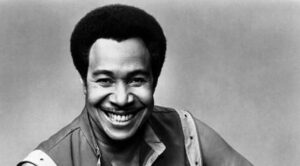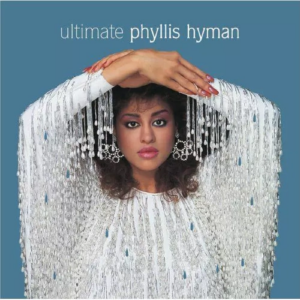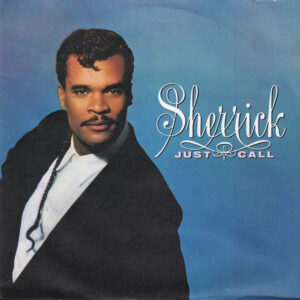The curious case of Martin Luther (sometimes Martin Luther McCoy and now, apparently, “Martian” Luther) was made that much more curious with the quiet release of his third studio and fourth overall album release in the last ten years. Along with fellow pioneers Eric Roberson and Fishbone, Martin Luther has been one of the legends of black independent music, blazing his own trail without the support of a major label engine. Still, a long, very public stint with The Roots, a minor hit single and high rotation video for the cult classic “Daily Bread,” and a high-profile starring role in the Academy Award nominated film Across The Universe where he performed the new definitive version of George Harrison’s “While My Guitar Gently Sleeps,” all elevated Martin Luther to that artist “on the verge” of making serious commercial in roads into the mainstream. Soul’s next Kravitz or Hendryx.
So, seven years since Rebel Soul Music and five years after his live album (Live At Arlene’s Grocery), it was more than a little curious to witness Martin Luther drop his newest album on the Internet with nearly zero advance promo. No leaked buzz cut to the blogs, no single sent to radio (even college or internet radio), no P.R. videos, and no interviews with the bloggers and underground tastemakers; only a brief announcement to fans only one week before its release. It was an unheard of set-up for a project as anticipated and an artist as important to the underground as Martin Luther. So, speculation has been high: is this album like a Hollywood movie that the studios refuse to pre-screen for the critics knowing it’s a dud? Well, not exactly. Actually, it’s the exact opposite.
In many ways, Extraterrestrial Brother Vol. 1 is Martin Luther’s most accessible and soothingly listenable album since his debut, The Calling. Vocally he’s so beautifully seasoned that every rocker-soul cry feels like the deepest ache and highest longing and every falsetto as soft as a cloud puff. Musically, the very personal songs quite simply glide without the fuss, overriding funk, or bombastic effects that have jagged-edged some of his previous, more spit-shined material. That’s not to say there’s no thump or chicken grease on this project; the witty “PimpMo’bile (feat. George Clinton & Omega),” “Ackrafunkulous (featuring Shelby J),” and the synthy “Nawty Lil Dumplings (feat STIC)” certainly usher in some laidback Cali party fun. A classic West Coast hip hop soul ditty featuring a very vibrant Tupac Shakur is a gem of a vault cut (lest we fan more speculation of a walking Pac so soon after his 42nd birthday) sporting heavenly harmonies from a silky McCoy. It’s just all so much more relaxed than anything we’ve heard from McCoy, shy of his Beatles covers, as though Martin Luther finally released some things to birth these songs, bringing something that couldn’t be readily said about his usually earnest, even occasionally frenzied music: ease.
From his head-nodding love song to his brother on “Fear of Faith Demo” to his old school celebration of “Soul Music (feat San Quinn & Codany Holiday),” there is so much to love about the smooth rollout of Extraterrestrial Brother Vol. 1. Recent, busier releases by fellow ‘60s enthusiast rockers Van Hunt and Lenny Kravitz feel more studied and calculatedly constructed in comparison, certainly more lyrically pretentious and thematically heavier than the these silken, otherworldly elixirs. Even when Martin Luther covers Kurt Cobain’s more aggressive punk rock tune, “Heart Shaped Box,” and the electric guitar gets to blaring and wailing, it’s never overwhelming or jarring either to the ear or spirit. Nor are the two slightly more throwaway rock songs, Aaron Bellamy’s “More from You” and Luther’s own self-penned “Smells of Love,” located toward the end of this now nearly unheard of 16-track project.
By the time Paisley Hinton and Martin Luther get to clowning around on the funniest and simplest bit of truth-telling we’ve ever heard from McCoy, “The Facebook Song,” we are reminded that Martin Luther can be every bit as witty a humorist as The Foreign Exchange’s Phonte. That is further evidenced by the bitingly ironic “Black Box” and the band banter on the outtakes—which are hilariously left in the song—of the otherwise heart-breaking rock ballad “My Favorite Sweater.”
What becomes clearer after listening to some of the sparer productions and minimalist mixes on what is possibly the best album of Martin Luther’s long and surely frustrating career is that this project wasn’t ever really conceived with commercial considerations and big budget marketing pushes in mind. This is an intimate love letter from an artist to his fans, one made that much more generous by its “name your own price” Bandcamp pricing. Said to have been recorded while on the road with a collective of similar musical nomads in between hotel rooms and at friend’s studios, the album is a healing antidote for an elite artist who unworthily has been told by one too many major labels that as a 30something Black rocker he is too old (and too Black) for a major label deal in the rock world, one founded by Blacks, but is today nearly completely cut off at the highest levels to solo or all Black rock acts outside of Kravitz (just ask Fishbone, In Living Color, Corey Glover, Terence Trent D’Arby, Cody ChestnuTT, and even Van Hunt a little about this). In response, Luther has steadfastly refused to allow the majors’ narrow-minded view of what a “Black Box” is supposed to be and who and what kind of music is supposed to fit in it to keep him from delivering his goods to a grateful base.
And, so the soul rocker has grinded on as a lead partner of his Rebel Soul Records label, where he continues to release the albums that have made him a beloved indie star. This undersold gem of a project may have been intended to be but a placeholder until the latter-year release of McCoy’s next official album, Love is the Hero, but its unintended genius will no doubt add to this star’s overall luster. We just hope more folks get to hear it and see just how brightly this Martian’s extraterrestrial star has come to shine, despite the limiting darkness others have far too often attempted to impose upon its light. Highly Recommended.
By L. Michael Gipson









